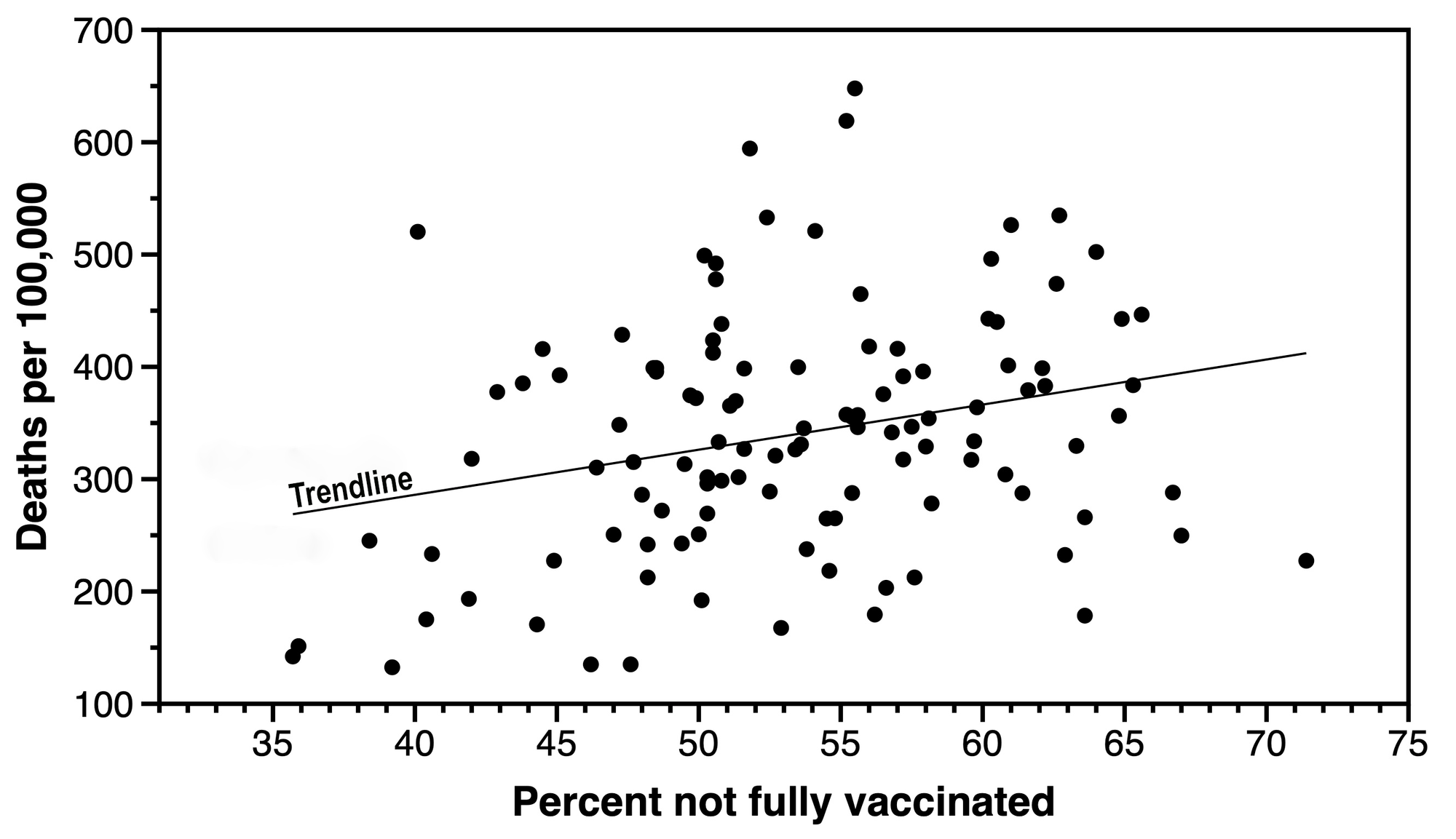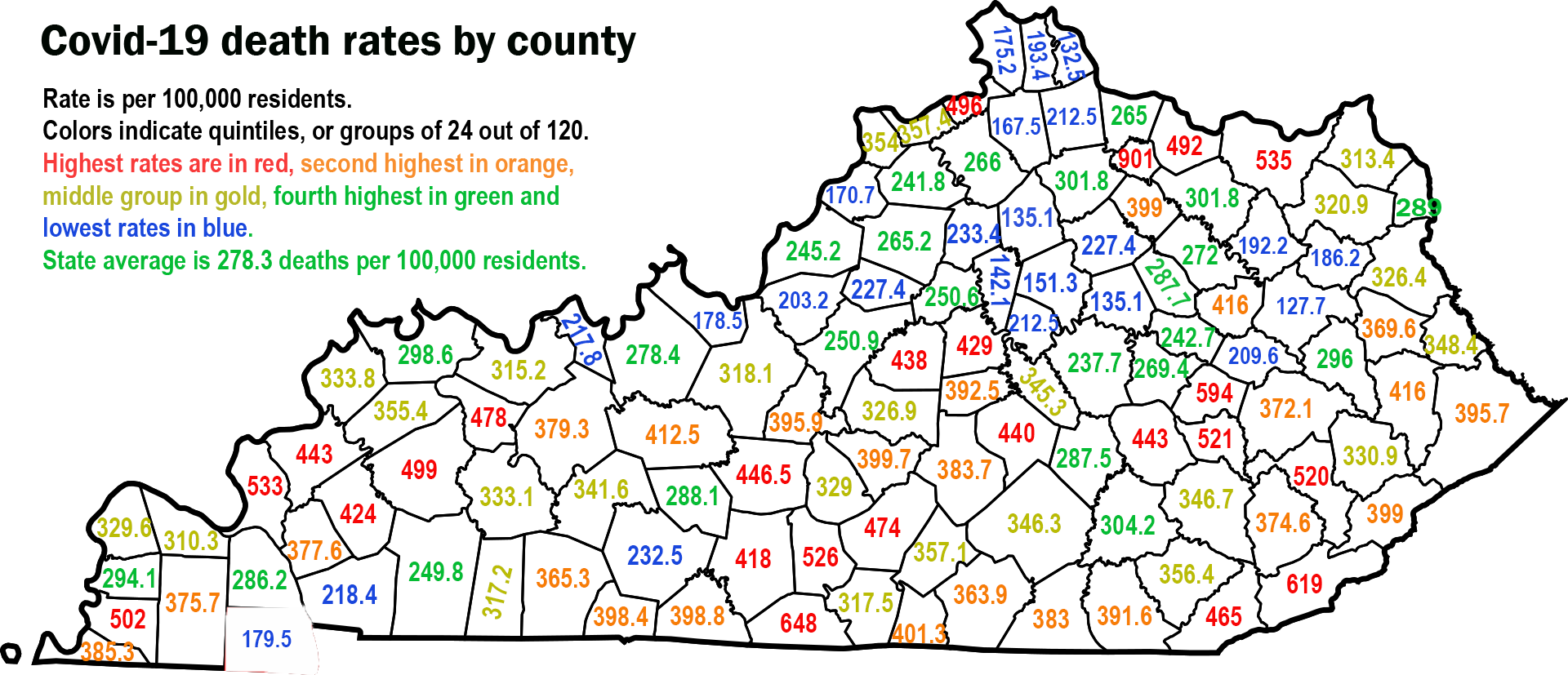If you live in a Kentucky county where a low percentage of the population has been fully vaccinated for Covid-19, more of your neighbors are likely to have died from the disease. And if you live in a county with a high full-vaccination rate, it is likely to have a low death rate.
That is proven by a comparison of Kentucky counties' Covid-19 death and vaccination rates as compiled by the state Department for Public Health. The department provided the previously unreleased death rates, as of Jan. 11, to Kentucky Health News at its request.
The statistics were compared by the College of Public Health at the University of Kentucky. Donna Arnett, dean of the college, said the comparison showed that "non-vaccination rates were statistically associated (at the county level) with increasing death rates," and that the association was significant.
The correlation is moderate, not strong, said Bruce Maples of the online publication Forward Kentucky, who has previously performed research and statistical analysis for Kentucky Health News. He found a slightly lower, but still moderate, correlation with partial vaccination rates.

Many factors enter into death rates, including the extent of other preventive measures such as mask wearing and social distancing, the effectiveness of local health agencies, the underlying health status of the population and the presence of nursing homes that have had deadly Covid-19 outbreaks.
Most Kentucky counties with low death rates are in the state's metropolitan areas, which have high health status; and most with high rates are rural, but there are exceptions.

For example, tiny Gallatin County is part of the Cincinnati metro area but has one of the highest death rates, 496 per 100,000 residents. (It has had 44 Covid-19 deaths and its 2020 census population was 8,690.) But it has low vaccination rates, 43% with one dose and 40% fully vaccinated.
Perry County, in southeastern Kentucky, has one of the state's higher vaccination rates but also one of the higher death rates, 520 per 100,000 residents. (It has had 138 Covid-19 deaths and its 2020 census population is 28,473. Its county seat is Hazard.)
Only three counties in the East Kentucky Coalfield – Elliott, Morgan and Wolfe – have full-vaccination rates in the top one-fifth of the state.
Spencer County, part of the Louisville metro area, has the lowest vaccination rate reported by the state, 33%, but one of the lower death rates. Local officials have questioned the state's data gathering and methodology, saying that many Spencer County vaccinations are credited to adjoining counties.
Generally, though, urban counties tend to have high vaccination rates and low death rates, and rural counties tend to have higher death rates and lower vaccination rates.
The biggest cluster of counties with high death rates is in Southern Kentucky. It includes Monroe County, which has the state's second-highest death rate, 648 per 100,000. Other counties in the cluster are Barren, Hart, Metcalfe and Adair.
The county with the highest death rate, Robertson, also has Kentucky's smallest population, 2,108, so its rate can be significantly affected by a small number of deaths. The county has had 19 deaths attributed to Covid-19, according to the state health department's latest daily report.
--30--
Written by Al Cross. Cross-posted from Kentucky Health News.







